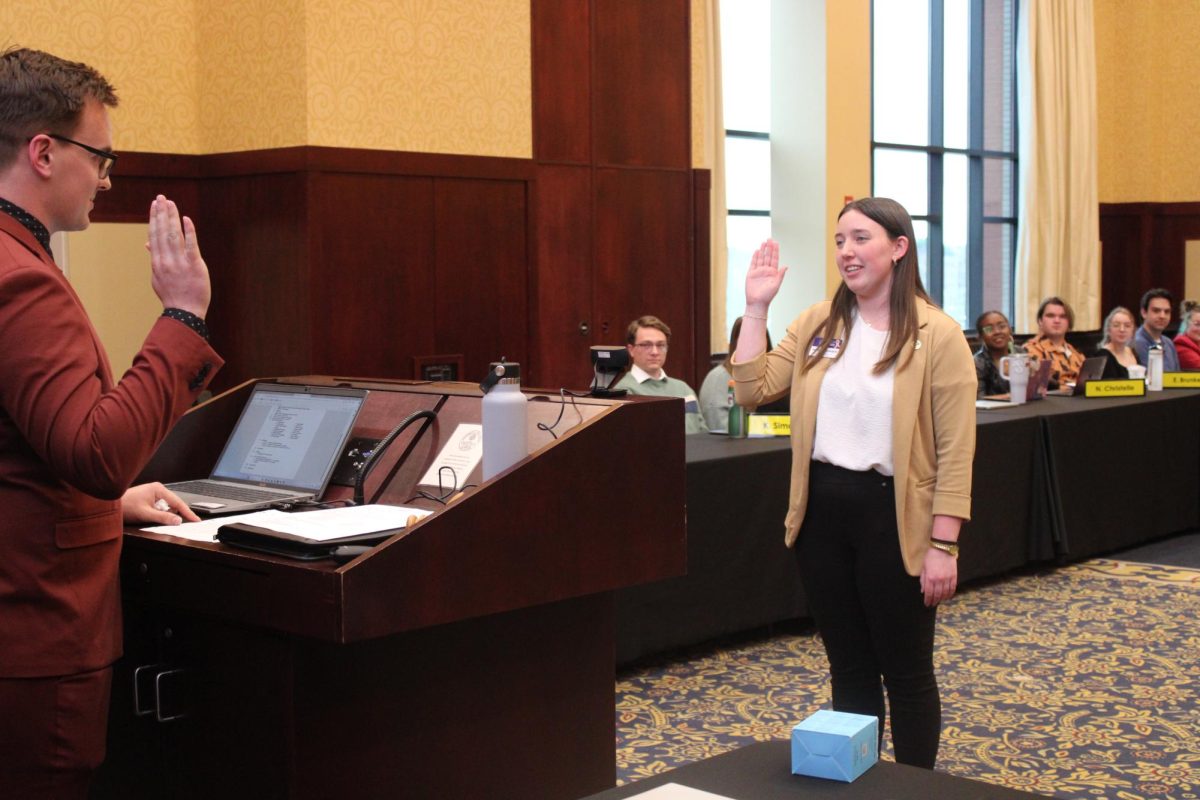 Molly Tumanic
Molly TumanicAs graduating students begin to face the mortality of their college experience, UW-Eau Claire is requesting its future alumni to participate in a few last assessment exercises.
In recent weeks, the university sent reminders to graduating seniors regarding participation in the Baccalaureate Portfolio Project, which was introduced during students’ First Year Experience courses.
The Portfolio Project is one of the many assessment tools used to evaluate the university’s progress on meeting the 11 Undergraduate Baccalaureate Goals.
Other university assessments include student opinion surveys, exit interviews, alumni surveys and standardized tests.
Each evaluation is designed to assess the Baccalaureate Goals in a different way.
With the Portfolio Project, students have an opportunity to make improvements in programs they might have struggled with.
“I have family here … (the university) dropped my major. I don’t want others to go through that,” said senior electronic media major Beth Steward. “I want to help others to get a better education they deserve and pay for.”
| “It’s giving something back to the university.” –Susan Harrison University Senate Chair |
Steward transferred to Eau Claire after a year at Bethel College in St. Paul, Minn. The university does not expect transfer students to complete the Portfolio Project.
“I think (the university) should compare students’ experiences at other colleges with their progress here,” Steward said. “Transfer students can participate without harming the project as long as the transfer is implied.”
Associate mathematics professor and University Senate Chair Susan Harrison said students should feel an obligation to participate in assessment exercises.
“As a citizen of the university, you should want to make it better, just like instructor evaluations at the end of the semester,” Harrison said. “It’s giving something back to the university.”
Harrison also expressed concern regarding students’ misconceptions surrounding the Portfolio Project.
“It’s not grading the person; it’s grading the university,” Harrison said.
Scott Oates, assistant professor of English and Portfolio Project coordinator, said the portfolios are reviewed anonymously.
Since the project’s inception in 1998, student participation has been increasingly low, he said.
The e-Portfolio is the online version of the Portfolio Project.
“The e-Portfolio is a way for the university to take the burden of the project off the students,” Oates said.
He said the best turnout for the Portfolio Project has been from departments that require a portfolio as part of students’ capstone course.
The math, English, psychology, kinesiology, education and history departments all require either a department portfolio or the Baccalaureate Portfolio Project as part of their capstones.
Oates said that while the university strongly encourages and expects students to participate in the Portfolio Project, there is no mechanism to bar students from receiving their diplomas should they fail to complete it.
Students can benefit from the Portfolio Project, he said.
“It helps a student look back on their entire educational experience,” Oates said. “It helps students discuss with employers, graduate schools, colleagues … about their whole educational experience.
“There is an option in the future for a post-baccalaureate e-Portfolio students can use,” Oates said.
Students can access and edit their e-Portfolio at www.username.with.uwec.edu.
Oates said even partially completed portfolios would be accepted.






